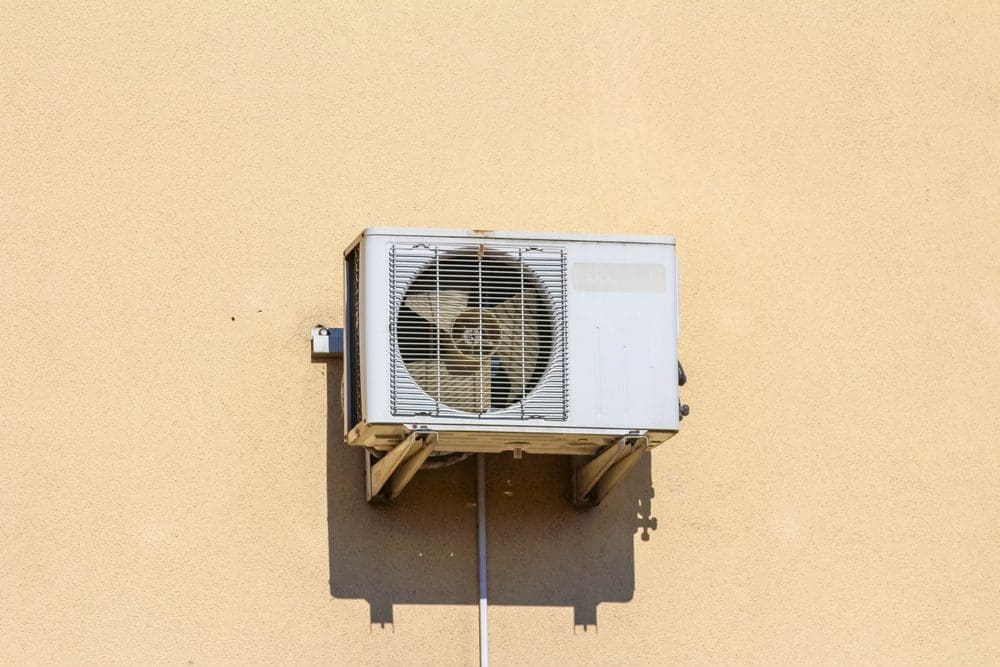
Europe has experienced a major summer heatwave, leading to more than 2,300 deaths earlier this month.
In 2024, a study in the scientific journal Nature estimated 47,690 heat-related deaths across the continent. Yet only about 19 % of European homes have air‑conditioning compared to 90% in the United States, according to EuroNews.
Most residents still rely on fans, shutters and a stiff upper lip to get through ever‑hotter (and hotter, and hotter…) summers.
Bricks, Shutters & “Draft” Myths

The majority of Europe’s residential buildings were erected before 1980, when summers were milder and energy codes silent on indoor cooling.
Pre‑1980 masonry buildings once kept interiors tolerably cool at night, and many Europeans still believe chilled air causes sore throats or feels “too American.” Those cultural hang‑ups combined with strict heritage‑façade rules have slowed AC adoption even as passive tricks lose their punch.
Sure, traditional design is an asset as an aesthetic but it no longer guarantees comfort in southern Germany, let alone in Athens or Seville, where average summer temperatures now rival Houston’s.
Cooling Isn’t Cheap

Households in the EU pay an average of €0.287 per kWh for electricity, roughly 60 % more than U.S. consumers. With a basic split unit costing €1,500–3,000 to install, many families still see sweating through a few scorching weeks as the cheaper option.
Rules That Raise the Bar

The new F‑Gas Regulation 2024/573 bans many high‑GWP refrigerants after 2030, and updated building‑efficiency rules demand pricier, high‑spec machines.
Great for the climate but tough for bargain hunters who are looking for a reprieve from the hot summer sun.
The Stealth‑AC Boom

While resistance to “AC for AC’s sake” persists, Europe is quietly installing millions of reversible air‑source heat pumps that double as highly efficient air‑conditioners. The European Heat Pump Association counted 3.02 million units sold in 2023 across 21 countries, bringing the installed stock to roughly 24 million
Each unit heats in winter and quietly cools in summer, expanding “hidden” AC capacity without changing the skyline, which could save lives as it scales across the continent.
Cooling a Whole City

Paris is extending its Seine‑water district‑cooling grid by another ≈160 km of pipes by 2042, while Stockholm and Helsinki are eyeing similar systems. If these networks scale, dense city centres could leapfrog the window‑unit era altogether.
The Road Ahead

- Policy resets. New national heat‑health plans increasingly tie adaptation funds to cooling retrofits in social housing and schools.
- Technology convergence. High‑efficiency heat‑pump splits using low‑GWP refrigerants (e.g., R‑32, propane) may soon erase the cost and environmental gap with old single‑speed units.
- Behavioural change. Smart shading, reflective roofs and urban greening remain Europe’s first line of defence; they are cheaper than electrons and require no grid upgrade.
- Equity questions. As cooling becomes a necessity rather than a luxury, the moral case for subsidising low‑income households grows stronger, especially in countries where excess‑heat mortality already dwarfs that of any other extreme‑weather peril.
Bottom Line

Europe’s stubbornly low air‑conditioning rate is not a quirky lifestyle choice but the cumulative result of building typologies, cultural narratives, high electricity prices and deliberate climate policy.
All four forces are now in motion: summers are deadlier, public attitudes are thawing, reversible heat‑pumps are flying off shelves, and city‑scale cooling networks are tunnelling under streets.
Whether the continent can scale those solutions fast enough—without blowing its emissions targets or its power grids—will determine if the next summer heatwave feels survivable, or not.

























